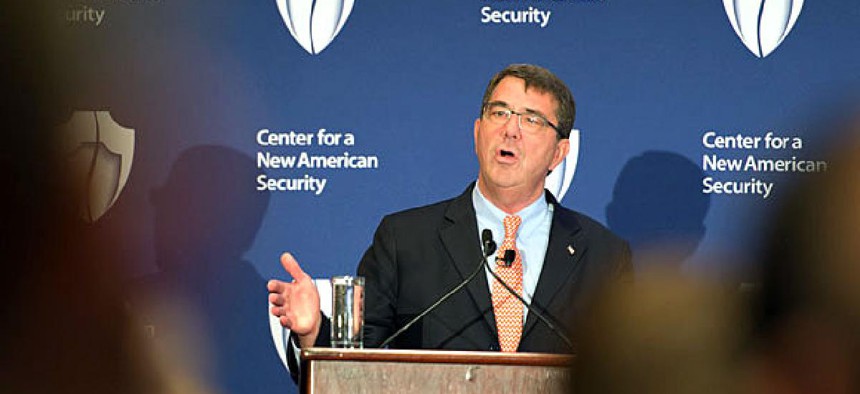
Deputy Secretary of Defense Ashton B. Carter Defense Department
Pentagon Preparing Two Budget Plans for Fiscal 2014
Sequestration cuts are ‘embarrassing,’ could require sharp workforce reductions, official says.
The Pentagon is planning for two scenarios in fiscal 2014 because the outcome of budget negotiations between the White House and Congress remains uncertain, a senior Defense Department official said on Wednesday.
Deputy Defense Secretary Ashton Carter said the department was “prepared for a wide range of budget contingencies,” adding that the department’s approach next year would depend on how Washington sorted out its fiscal situation.
One plan will be based on the Obama administration’s fiscal 2014 budget request and the other assumes Washington continues to be mired in “fiscal gridlock," Carter said during an annual conference hosted by the Center for a New American Security.
Carter said the Pentagon’s Strategic Choices and Management Review, the budget evaluation ordered by Defense Secretary Chuck Hagel in March, had been completed and awaited review by Hagel’s office. The SCMR will be the “basis” for the fiscal 2015 budget request, and will also help with fiscal 2014 budget decisions, Carter said. A recent memo from his office directed Defense managers to plan for a possible 10 percent budget cut in fiscal 2014.
Still, Carter lamented the impact that sequestration was having on Defense’s budget and planning efforts.
“Despite our best efforts to minimize this damage, it is at a minimum, embarrassing, to be doing this in the eyes of friends and foes alike,” Carter said.
Defense must complete and submit a plan to make good on a promise to the leadership of the Senate Armed Services Committee. In May, Sens. Carl Levin, D-Mich., and Jim Inhofe, R-Okla., wrote to Hagel demanding a “package of reductions” by early July to help plan for possible sequestration cuts in fiscal 2014.
Carter also said he “aligned” himself with the recent shadow budget reviews conducted by CNAS and a host of other Washington D.C. think tanks. The organizations said that sharp reductions to the department’s civilian personnel would be necessary to help realign resources in areas such as the Asia Pacific and cybersecurity.







